Translations 677
Winnie Mandela Passes On

Winnie Mandela, A Symbol of the Anti-Imperialist Struggle in South Africa, Passes On
South African activist and politician Winnie Madizikela Mandela passed away on Monday at the age of 81, her personal assistant said on Monday.
——————————————————————-
Author: Digital Editor | internet@granma.cu
April 2, 2018 11:04:04:04
A CubaNews translation. Edited by Walter Lippmann.
Veteran anti-apartheid fighter Winnie Mandela, who became a reflection of South African women during the years of repression against the majority black population, died Monday at 81, Prensa Latina reported.
Spokeswoman Zodwa Zwane confirmed that Winnie passed away this afternoon and that the family will issue a statement within a few hours.
Nomzamo Winifred Madikizela was born in 1936 in Bizana, Eastern Cape Province, and moved to Johannesburg in 1957 to study Social Work, when he met the legendary leader Nelson Mandela, whom he married the following year and had two daughters. The marriage ended in 1996.
An icon of women’s struggle and resistance in this southern African country, Winnie is remembered for her confrontation with the racial segregation authorities in South Africa, her political harangues and her participation in black workers’ strikes when her then-husband was imprisoned with other leaders of the African National Congress (ANC) on Robben Island.
In 1993, she was elected president of the ANC Women’s League, Minister of Art, Culture, Science and Technology in the first government after the end of apartheid, and left her official position in 1996.
Until her death she was involved in community work at his residence in Soweto.
Cuba Mourns Winnie Mandela’s death

Cuba Mourns Winnie Mandela’s death
In the afternoon of Wednesday, the Vice President of the Council of State, Mercedes López Acea, signed the book of condolences at the South African Embassy on the island due to the death of the South African leader Winnie Mandela.
Author: Darcy Borrero Batista | darcy@granma.cu
April 11, 2018 15:04:35
A CubaNews translation. Edited by Walter Lippmann.
In the afternoon of Wednesday afternoon, Mercedes López Acea, Vice President of the Council of State, signed the book of condolences at the South African Embassy on the island due to the death of the South African leader Winnie Mandela.
In front of Winnie’s image, surrounded by a vase of flowers, Acea, who is also the first secretary of the Party in Havana, wrote that “in view of the death of Winnie Mandela, a prominent defender of the rights of her people and an activist against the apartheid regime, we convey to the government and people of South Africa our deepest condolences on behalf of the people and the Government of Cuba, which we extend to them”.
Along with her words also appear the signatures of Vice-Chancellor Abelardo Moreno and Gisela García Rivera, Director for Sub-Saharan Africa of the Ministry of Foreign Affairs (Minrex).
The veteran anti-apartheid fighter who was the second wife of leader Nelson Mandela, became a reflection of South African women during the years of repression against the majority black population.
She died on Monday of the week before, at the age of 81.
Five Million Cell Phone Lines

Five million cell phone lines already active in Cuba
This figure confirms the growing evolution of mobile telephony on the island in recent years
By Juventud Rebelde digital@juventudrebelde.cu
Published: Thursday 12 April 2018 | 02:08:31 AM
A CubaNews translation. Edited by Walter Lippmann.
At press time, it was announced that a customer had signed a contract with a commercial unit of the Cuban Telecommunications Company (Etecsa) in Guanabacoa, in the eastern part of Havana, with whom the country has five million active mobile line services. According to information provided by Etecsa’s Institutional Communication Department, this figure confirms the growing evolution of mobile telephony on the island in recent years. Keep in mind that in December 2003 there were only 43,000 active mobile lines, by April 2008 the number of these had risen to 223 000, by March 2014 it had reached 2 million, by December 2016 it had reached 4 million, and 2017 closed with 4.22 million of these services.
Lizette Vila’s documentary
Paquito el de Cuba
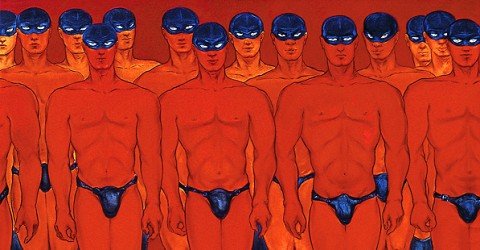
Lizette Vila’s documentary or Padres en plural
By Francisco Rodriguez Cruz
November 19, 2017.
Translated and edited by Walter Lippmann for CubaNews.
I’m not going to try to do a review or evaluation of Lizette Vila and Ingrid León’s documentary, because I’d be a judge and a party, and that would be very ugly. Even more so when I’m still under the impression of the apotheosis of the premiere that Soy papá had this Saturday, November 18th… anyway, in a Yara cinema at full capacity, which forced me to offer a double performance.
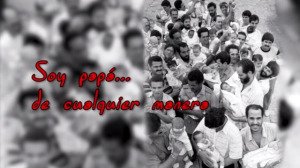 I just wanted to thank you for the gift, which was great, for my son, my partner and me, that we were able to enjoy it also among so many good and friendly people. I barely recover, though, from the shock of seeing my face – what a horror! – on the big screen.
I just wanted to thank you for the gift, which was great, for my son, my partner and me, that we were able to enjoy it also among so many good and friendly people. I barely recover, though, from the shock of seeing my face – what a horror! – on the big screen.
I also self-critically admit that I underestimated the impact of this bringing to life of the Palomas Project.
A little more than 30 minutes with the biographical shreds of a dozen or so men, I never thought they would attract so much kind and even overwhelming attention from a wide and diverse audience.
Personally, what I liked the most was to know the other stories of this choral interview – moving at times, sometimes hilarious, always authentic, by what they show, and even more, by what one can guess behind each testimony.
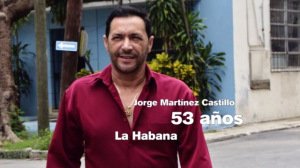 It was nice, but undeserved to be able to share the stage with such great parents at the end of the screening, and to receive with them, their families and my son Javier, the solidarity and affection that the audience lavished on us with an applause that I interpret as a recognition, not individual, but collective, for all the parents.
It was nice, but undeserved to be able to share the stage with such great parents at the end of the screening, and to receive with them, their families and my son Javier, the solidarity and affection that the audience lavished on us with an applause that I interpret as a recognition, not individual, but collective, for all the parents.
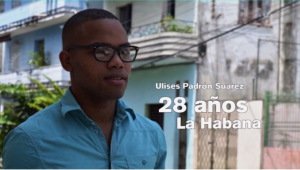
Because beyond the explicit purposes that link it with international campaigns and just social causes, this audiovisual is ultimately a claim to paternity, the best balance of which is not melodrama -which there is, there was no lack of it, we speak of Lizette Vila – but the natural force of a joy, accomplishment or pride that is difficult to explain, but easy to perceive even in her saddest or most heartbreaking stories.
Because, beyond the explicit purposes that link it with international campaigns and just social causes, this audiovisual is ultimately a claim to paternity. The best balance of this is not melodrama -which there is, there was no lack of it, we speak of Lizette Vila – but the natural force of a joy, accomplishment or pride that is difficult to explain, but easy to perceive even in her saddest or most heartbreaking stories.lk;
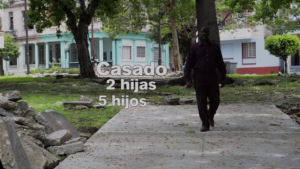
Omar Montalvo Chirino
Another great success was its projection on the eve of November 19, 2017, International Men’s Day, a celebration that has existed since the 1990s, but we rarely remember it.
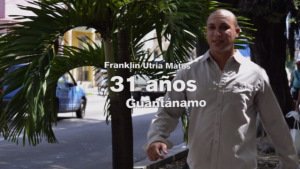
This makes it all the more valuable and timely to look at these Cuban parents – parents or biographers – who share different experiences from different ages, marital status, professions, territories; 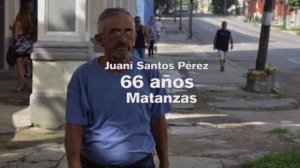
without forgetting variables such as sexual orientation and gender identity, as they include other male perspectives that the traditional notion of manhood usually tries to ignore, silence or at least diminish, disguise.
Another great success was its projection on the eve of 19 November 2017, International Men’s Day, a celebration that has existed since the 1990s, but we rarely remember it.
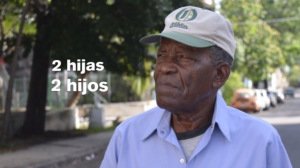
I am therefore pleased to be part of this thoughtful, disturbing and problematic tribute to the most intense and enriching human experience I know: being a father.Juan Nodarse Ramos
Thank you, Ingrid; thank you, Lizette.

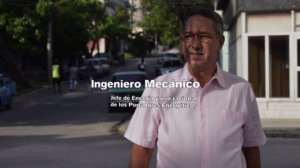
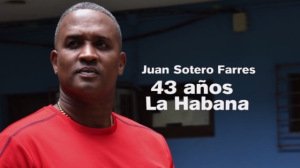
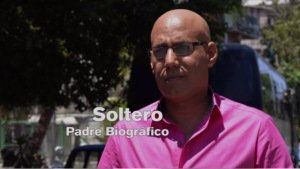
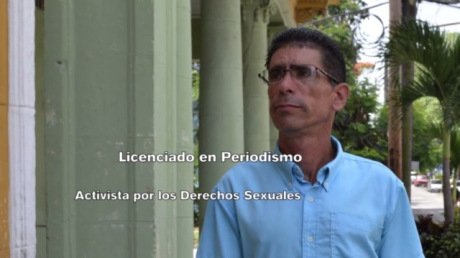
Truly Human Rights
Truly Human Rights
 By Manuel E. Yepe
By Manuel E. Yepe
http://manuelyepe.wordpress.com/
Exclusive for the daily POR ESTO! of Merida, Mexico.
Translated and edited by Walter Lippmann.
Among the many unique qualities of the Cuban political process, and the organization of politics that has emerged from the revolutionary changes on the island, is the achievement of social peace in Cuba. It’s a phenomenon unthinkable in most other nations of the continent including, of course, the United States.
Surprised by this tranquility and security, many of the visitors from the United States who have been able to travel to Cuba with the exceptional authorization of Washington wonder if there are any organizations in Cuba that oppose the government. The answer, which is surprising to many, is that the only effective organizer and leader of the opposition in Cuba is the United States government. This is because Cuba’s citizens enjoy the daily right to participate in the construction of the new socialist order, but they also have the right to dissent. This is exercised in multiple instances of the vast and intense Cuban participatory system.
But another very important reason, one less spoken about, is that U.S. foreign policy has always been obsessive in maintaining a very direct and rigorous control over this dissidence. Very few Cubans agree to align themselves, to make use of their right to disagree, under the directions of a foreign government that openly proclaims itself to be an enemy of the independence, identity and social justice objectives of Cubans, and even less so with let alone do it in exchange for material benefits.
Washington’s instinctive imperialist voracity has never resigned itself to accepting a neighbor which does not blindly submit to U.S. hegemony. If not, they will learn from their own historical-practical experience, as have Puerto Rico, Mexico, Canada, the Dominican Republic and Haiti!
All these countries have suffered, in addition to Cuba, the extreme violence with which Washington is able to impose its neighbors’ submission to US designs.
The methods used by U.S. foreign policy to keep or return its neighbors to the fold have not always been identical. For example, from the dangers of absorption and subtle threats that have advised Canada to stay within the British Commonwealth. Why? To prevent its absorption by its American neighbors to the south. Then, the extension of borders by force with which Washington took half of its territory from Mexico. And, of course, the longest economic blockade in world history that still persists against Cuba. And we’re not even detailing the multiple invasion operations, coups and interventions sponsored by the OAS (Washington’s ministry of colonies), our America has experienced in recent centuries.
In the specific case of Cuba, a fierce campaign for the demonization of the purposes and actions of the Fidelista revolution began to develop before the triumph and seizure of power by the people in January 1959. It has been a sustained and relentless campaign, initially by the powerful US secret services of subversion and later publicly and notoriously, with multi-million dollar programs and plans aimed without discretion or shame at subverting order on the island.
This policy has been complemented, most of the time, by a ban on US citizens visiting the island in search of their own individual assessments.
With William Clinton in the presidency, the “people-to-people” policy was briefly put into effect. It authorized visiting Cuba by a certain category of individuals from academia and universities in general. It was designed with the purpose that the visitors would influence the Cubans by making them see the advantages of capitalism more, as was logical, the opposite was what happened.
President George W. Bush felt compelled to cancel the program, realizing its boomerang effect. By clashing with the truth of Cuba, the visitors became the best spokespersons for the Cuban reality.
In March 2016, then-President Barack Obama used his presidential powers to enact several measures that allowed certain categories of Americans to travel to Cuba with fewer restrictions. Nevertheless, the unconstitutional ban on tourist travel remained in place.
Donald Trump’s autocratic regime has preferred to apply measures of terror and threats in his speeches to counter the interest of U.S. citizens in approaching Cuba.
Cuba’s socialist revolutionary project does not impose anti-capitalist conditions on other countries. All it demands is respect for its experiments, essays, and studies. Cuba’s project is to create an alternative social and economic order to failed capitalism, one that is more just and better for the Cuban people and its independence.
April 9, 2018.
Between rebellion and brazenness

Between rebellion and brazenness
Posted: Saturday 17th March 2018 | 10:52:43 PM
 Author: Alina Perera Robbio
Author: Alina Perera Robbio
This reflection begins with a true story: in a certain pharmacy in the capital, a patient asks for the medicine that will take him out of the crisis in which his digestive system has fallen and out of an almost unbearable pain that has caused him to go out into the street despite the fact that the doctor has ordered absolute rest.
The needy person, who has to update his or her home address papers, carries a certificate with him or her where the word “transit”, written by the doctor, can be read, but the pharmacy technique explains that the term is only applicable to transfers between provinces.
The dialogue between the needy and those who can help becomes a dead end. At some point the technique says vaguely: “Let’s see if we understand each other, let’s see if we can “solve…”. The patient gets confused and just asks, “Will they give me the medicine or not? Suddenly someone remembers that there is only one box left with the pills that they are urging and that are destined for a very critical case in the community. The patient feels almost guilty, and without having solved his problem he leaves with a bitter and surprising memory of the phrase in which he had hinted at the possibility of a solution.
Among Cubans there are terms that allude to our incessant effort to make our way through multiple difficulties: the “battle” or “struggle”, for example, serves to remind us of the enterprising eagerness, often positive, of the children of this island. But there are words that speak to us of less clean attitudes – such as the “search” – or of invitations to “solve”, to mediate in circumstances that, so humanly delicate, do not allow the inclusion of intentions of sale and purchase.
This last word is often disconcerting to the listener, who does not know the language of “help me, I will help you”: No one who has in his soul an ethical protocol in which cheating and pillaging add to the list of anti-values will be able to comfortably assume that complicity in which “aid” has a price and in the end the feeling remains that, to the right, solutions either arrive late or never arrive, unless there is a commercial option.
To tell the truth, the desire to “seek” (i.e. to find monetary or material advantages where there are resources), or this desire to “solve” – whether from the person who charges or from the one who pays – could find multiple explanations in reality: In three decades of increased economic and social difficulties, we have seen a lot of weeds grow in the shadow of emergencies and needs; life, like water seeking to run its course, has become for many a long-distance race in which almost everything is done against the clock, desperately, in a context marked by a lack of resources, bureaucracy and inefficiency in providing services, in a country that for much more than three decades has suffered the handshake of the empire through a commercial and financial blockade.
To these known and accumulated problems we must add the new challenges arising from the reconfiguration of the country in the economic and social spheres – a stage that, as a friend told me, is reminiscent of the movement of the bowels of the Earth, that rearrangement in which many customs and moral compasses seem to be dislocated while the scenarios, like the flakes of the planet, are being rearranged.
The fact that “resolving” lives among us as a style places us as a society, since it reminds us of the importance of the right-wing paths – that is, the entities that are responsible for the well-being of all – working together and doing so with agility. The other thing is that everything we design in terms of the necessary control must implicitly bring about the natural flexibility of life: rigidity and excessive restrictions are overwhelming and lead many to wonder what to do to “resolve” problems, and how to do it.
There is another inescapable aspect to this: even the ugliest attitudes can find an explanation, which does not mean that they deserve to be justified. Therefore, even if the most diverse distortions fuel the search for shortcuts, it would not be good for the dream country to wait for everything to go well in the target world to start looking inside. To rebel against brazenness and unscrupulousness at this moment seems to me to be an act of responsibility insofar as it limits the denial of virtue; it even seems to me to be an act of faith in the best possibilities for our fellow beings.
How to Protect the Cuban Consumer?

How to Protect the Cuban Consumer?
Although clients in our country can claim and assert their rights against any violation, it is worth asking what mechanisms and norms exist today to protect them.
——————————————————————————-
Author: Yaditza del Sol González | yadidelsol@granma.cu
A CubaNews translation.
Edited by Walter Lippmann.

The consumer has the right to choose, which gives him the possibility to satisfy his needs. Photo: Alberto Borrego
Of course, these evils are compounded by others that affect trade in our country. These include irregularity in supplies, price-quality balance, insufficient information provided to buyers on the terms of product guarantees, few strategies and promotional initiatives, or the symptoms of apathy and mistreatment sometimes shown by staff working in stores and other establishments.
One thing is clear: to leave it to spontaneity or good faith to solve this problem would be to be naïve. The country is aware that, more than a glance, the most important thing is to take precise action, without delay, to eliminate the culture of abuse. It is not a favor to attend to the people and provide them with the service they request.
SOME OF THE COMPLAINT MECHANISMS AND CHANNELS THAT EXIST IN THE COUNTRY:
The Assemblies of Accountability of the delegate of the People’s Power of the district or private attention by this delegate.
The Attorney General’s Office and the Legal Consultations, which deal with complaints and issue consultations to citizens.
In the Councils of the Municipal and Provincial Administration, and in the companies located in the different territories where the Departments of Attention to the Population operate.
The Offices of Attention to the Population of the Communist Party of Cuba, in all its instances.
The mass media is another way for the population to lodge complaints.
SOME CONSUMER RIGHTS ESTABLISHED IN RETAIL ENTITIES.
To the satisfaction of their basic needs, through access to essential basic goods and services through the different modalities established in the country and according to their income.
The protection of the life, health, and safety of the consumer against risks caused in the supply of products and services considered dangerous, harmful and against poor quality and false or misleading advertising.
To the protection of their economic income, through fair, just and respectful treatment in the purchase and sale and contractual transactions and against coercive commercial methods or methods involving misinformation about products and services.
To the information, that is, to receive all the truthful and timely information on the different goods and services, with correct specification of quantity, characteristics, composition, quality, and price, as well as on the risks they represent.
To education and dissemination on the appropriate consumption of goods or services that ensure freedom of choice, fairness in the conduct of exchange and the preparation of the consumer to engage in responsible consumption.
To choose, which gives the possibility to satisfy the needs of consumers according to their expectations, tastes, preferences, all within a national framework and in accordance with the specific possibilities and conditions of the national economy.
To ensure that the conservation and preservation of the environment is not undermined.
To full, timely and adequate compensation for damages resulting from the purchase of the goods or services offered on the market and to effective compensation, whenever feasible, as regulated in the event of the supplier’s default.
To have access to the corresponding bodies for the protection of their rights with a view to presenting their opinions and complaints in the different instances, creating the conditions for their analysis, through agile and efficient procedures.
The Artist of the Family
El ojo que te ve [The Eye That Sees You]
The Artist of the Family
Juvenal Balan
 Hello, I am Juvenal Balán, Cuban photojournalist, who invites you to reflect on photography, photojournalism and the current issues that concern us in our daily lives. I would like this page to become a place of friendship and solidarity between those of us who, camera in hand, walk the world trying to immortalize an image that bears witness to our passage through life.
Hello, I am Juvenal Balán, Cuban photojournalist, who invites you to reflect on photography, photojournalism and the current issues that concern us in our daily lives. I would like this page to become a place of friendship and solidarity between those of us who, camera in hand, walk the world trying to immortalize an image that bears witness to our passage through life.
Translated and edited by Walter Lippmann for CubaNews

Ojo de Agua Company with the presentation of all its groups at the Mariana Grajales Theatre on October 10th.

Ojo de Agua Company with the presentation of all its groups at the Mariana Grajales Theatre on October 10th.

Ojo de Agua Company with the presentation of all its groups at the Mariana Grajales Theatre on October 10th.

Ojo de Agua Company with the presentation of all its groups at the Mariana Grajales Theatre on October 10th.

Ojo de Agua Company with the presentation of all its groups at the Mariana Grajales Theatre on October 10th.
Daniel Chavarría Obituary in Granma

Daniel Chavarría, Icon of Latin American Crime Fiction, has died
Recognized in his adopted homeland with the National Literature Prize in 2010, the outstanding creator considered himself “a Cuban writer who was born in Uruguay”.
————————————————————
Author: Pedro de la Hoz | pedro@granma.cu
April 6, 2018 19:04:5
A CubaNews translation.
Edited by Walter Lippmann.
Daniel Chavarría, author of a book that revolutionized crime fiction in Latin America, died this Friday in Havana at 85.
Recognized in his adopted homeland with the National Literature Prize in 2010, the outstanding creator considered himself “a Cuban writer who was born in Uruguay.”
In doing so, he underlined his essential link with Cuba, where he arrived in 1969 and began a literary career with a firm step in 1978 when he published the novel Joy, winner three years before the Anniversary Contest of the Revolution of Police Literature organized by the Ministry of the Interior.
Since then, he won the fervor of readers and the endorsement of critics in Cuba and other countries through detective intrigue novels such as La sexta isla (The Sixth Island), El ojo de Cibele (The Eye of Cybele), Allá ellos (There They), El rojo en la pluma del loro (The Red in the Parrot’s Feather). Viudas de sangre (Blood Widows), Priapos, Una pica en Flandes (A Pike in Flanders) and El último roomservice (The Last Room Service), although he also published texts with a strong evocative charge such as Aquel año en Madrid.
Several of these books won important literary prizes, including the Casa de las Américas literary prize, the Dashiell Hammet prize for best detective novel in Spanish and the Edgar Allan Poe prize, awarded by the American professional association Mystery Writers of America.
Another notable publishing success was the publication of his memoirs And the World Walks on, which highlighted a personal life of adventure and his revolutionary consciousness.
Among his most recent works, he devoted special attention to one that he owed to his country of origin and to all those who defend the emancipatory ideal of the peoples of the continent: Yo soy el Rufo y no me rindo [I Am Rufo and I Do Not Give Up, a biographical novel on Raúl Sendic the founder of the Tupamaros, .
He was also very excited to publish some unpublished chronicles in the pages of Juventud Rebelde. Journalism burned in his veins.
Far Right Running US Cuba Policy

Ex-diplomat Vicki Huddleston points out that the extreme right has taken over US policy towards Cuba
By: Cubadebate Editorial Staff
April 5, 2018
Translated and edited by Walter Lippmann for CubaNews.
Subscribe to Blog via Email
| M | T | W | T | F | S | S |
|---|---|---|---|---|---|---|
| 1 | ||||||
| 2 | 3 | 4 | 5 | 6 | 7 | 8 |
| 9 | 10 | 11 | 12 | 13 | 14 | 15 |
| 16 | 17 | 18 | 19 | 20 | 21 | 22 |
| 23 | 24 | 25 | 26 | 27 | 28 | |






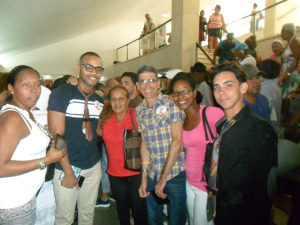
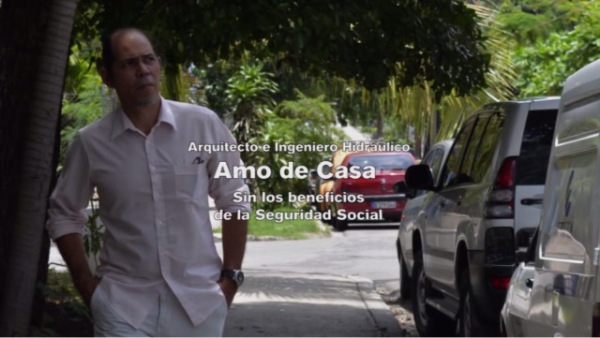



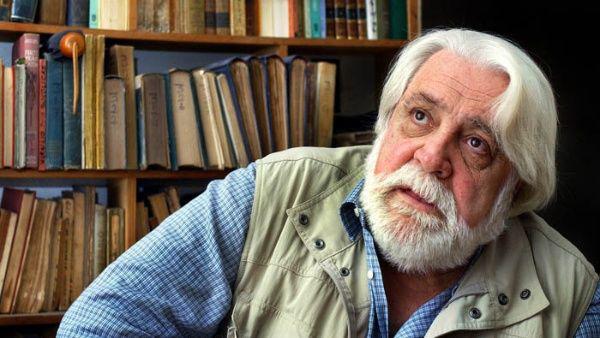
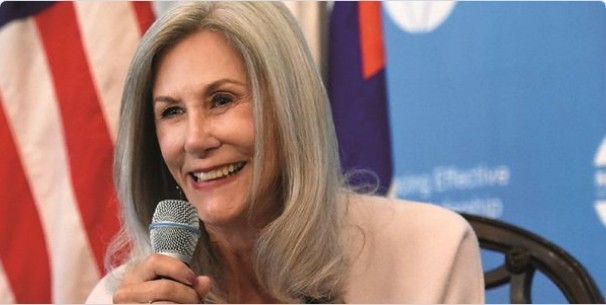
You must be logged in to post a comment.